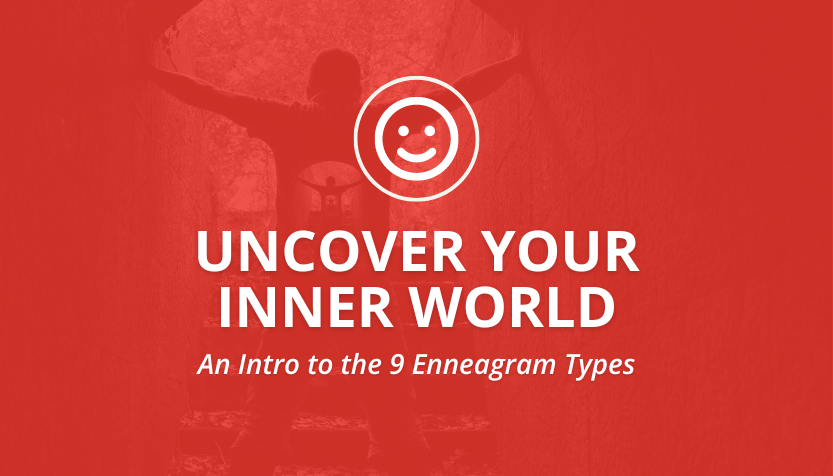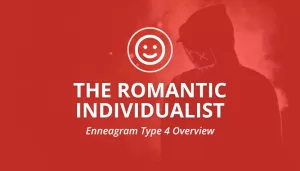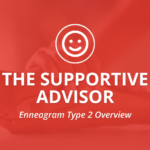Uncover Your Inner World: An Introduction to the Nine Enneagram Types
- By Brett Schaffner
- In Enneagram

Imagine discovering a book that feels like it was written just for you. As you turn each page, you find reflections of yourself – both the admirable qualities and the challenging ones. This is what it feels like to explore the Enneagram, a dynamic personality system that delves deep into our core motivations to reveal the essence of who we are.
Why Focus on Core Motivations?
To uncover your true Enneagram type, you must look beyond superficial traits and delve into your core motivations – what drives your actions, fears, and desires. This internal focus helps distinguish the Enneagram from other personality frameworks, making it a profound tool for personal insight. Remember, no type is inherently “good” or “bad” or even “better” or “worse” than another; each has unique gifts and challenges.
The Nine Personality Types
Enneagram 1: The Moral Perfectionist
The Enneagram Type 1 has a sense of mission in life driving them to want to improve the world in various ways. Ones strive to overcome adversity, especially moral adversity, so that they can make a difference, striving after higher values, even at the cost of great personal sacrifice. Ones typically have a strong “Inner Critic,” a voice in their head that constantly points out everything that they have done wrong and berates them. Ones have high standards for themselves and for others, attempting to do everything well to avoid criticism from the Inner Critic.
- Core Fear: Being wrong, bad, evil, inappropriate, unredeemable, or corruptible.
- Core Desire: Having integrity, being good, balanced, accurate, virtuous, and right.
- Core Weakness: Resentment – Repressing anger that leads to continual frustration and dissatisfaction with yourself, others, and the world for not being perfect.
- Core Longing: To hear the words, “You are good.”
Enneagram 2: The Supportive Advisor
The Enneagram Type 2 when healthy, is the most genuinely helpful to other people, but when less than healthy become the most highly invested in seeing themselves as helpful. Twos are naturally generous, often going out of their way for others and neglecting their own needs and desires in the process. They are very connected to their emotions and can easily read the emotions of others. When unhealthy, Twos begin to seek validation of their worth by serving others as a way to feel loved and needed.
- Core Fear: Being rejected and unwanted, being thought worthless, needy, inconsequential, dispensable, or unworthy of love.
- Core Desire: Being appreciated, loved, and wanted.
- Core Weakness: Pride – Denying your own needs and emotions asserting your support on others in hopes of receiving words of thanks and appreciation.
- Core Longing: To hear the words, “You are wanted and loved.”
Enneagram 3: The Successful Achiever
The Enneagram Type 3, when healthy, can and do achieve success in many areas of life, often looked up to because of their graciousness and personal/professional achievements. Healthy Threes can also enjoy motivating others to greater personal achievements. When less than healthy, Threes can become slaves to the appearance of success, bending the truth to appear good in a situation, afraid of disappearing into a chasm of emptiness and worthlessness void of the increased attention and feeling of accomplishment that success usually brings.
- Core Fear: Being exposed as or thought incompetent, inefficient, or worthless; failing to be or appear successful.
- Core Desire: Having high status and respect, being admired, successful, and valuable.
- Core Weakness: Deceit – Deceiving yourself into believing you are only the image you present to the world; embellishing the truth to present a polished persona to be admired.
- Core Longing: To hear the words, “You are loved for simply being you.”
Enneagram 4: The Romantic Individualist
The Enneagram Type tends to maintain their identity by seeing themselves as fundamentally different from others, feeling unlike other human beings and that no one can understand them or love them adequately. Healthy Fours are honest with themselves, owning all their feelings and can experience the depth of their emotions – “good” and “bad.” Healthy Fours are willing to reveal highly personal things about themselves due to their determination to understand the truth of their experience. Unhealthy Fours, on the other hand, can become fixated on feelings from the past, tending to nurse old wounds and hold on to negative feelings about those that hurt them. With this, believing that there is something fundamentally wrong with them, Unhealthy Fours cannot allow themselves to experience or enjoy their many good qualities.
- Core Fear: Being inadequate, emotionally cut off, plain, mundane, defective, flawed, or insignificant.
- Core Desire: Being unique, special, and authentic.
- Core Weakness: Envy – Feeling that you’re tragically flawed, as if something foundational is missing inside you, and others possess the qualities you lack.
- Core Longing: To hear the words, “You are seen and loved for exactly who you are – special and unique.”
If you'd like to use a test as a starting point to investigate or potentially confirm what you are feeling, try out my "What's Your Enneagram Type?" quiz below.
WHAT'S MY ENNEAGRAM TYPE QUIZ
Enneagram 5: The Investigative Thinker
The Enneagram Type 5 desires to find out why things are the way they are; to understand how the world works, be it the cosmos, the microscopic world, the animal kingdom, or the inner world of their imaginations. Fives are always searching, asking questions, and delving into things in depth, as opinions and doctrines won’t suffice, as the truth of most assumptions must be put to the test. Fives build their identity around their intellect and being seen as someone who has unusual and insightful ideas. For their own security and self-esteem, Fives need to have at least one area of expertise to allow them to feel capable and connected with the world.
- Core Fear: Being thought incapable or ignorant; having obligations placed upon you or your energy being completely depleted.
- Core Desire: Being capable and competent.
- Core Weakness: Avarice – Withholding yourself from contact with the world; holding onto your resources and minimizing your needs.
- Core Longing: To hear the words, “Your needs are not a problem.”
Enneagram 6: The Loyal Guardian
The Enneagram Type 6 is the most loyal to their friends and to their beliefs. They are highly committed to their friends and to the systems of belief that give them security. Sixes typically fight for their beliefs more fiercely than they will fight for themselves, and they will defend their community or family more tenaciously than they will defend themselves. Sixes tend to think – and worry – a lot. Sixes are known to have an Internal Committee – various voices in their mind that offer up contradictory information and numerous questions that can lead to self-doubt and analysis paralysis. Because of this, it is common for Sixes to seek a trusted friend or family member for advice. Once Sixes learn to face their anxieties, they begin to understand that although the world is always changing and is by nature uncertain, they can be serene and courageous in any circumstance, attaining the greatest gift of all, a sense of peace with themselves despite the uncertainties of life.
- Core Fear: Fear of fear itself, being without support, security, or guidance; being blamed, targeted, alone, or physically abandoned.
- Core Desire: Having security guidance, and support.
- Core Weakness: Anxiety – Scanning the horizon of life and trying to predict and prevent negative outcomes; remaining in a constant state of apprehension and worry.
- Core Longing: To hear the words, “You are safe and secure.”
Enneagram 7: The Entertaining Optimist
The Enneagram Type 7 is enthusiastic about almost everything that catches their attention. Sevens approach life with curiosity, optimism and a sense of adventure, almost like little kids in a candy store. They are exhilarated by the rush of ideas and by the pleasure of being spontaneous, preferring broad overviews and the excitement of the initial stages of the creative process to probing a single topic in depth. Unhealthy Sevens can be “flighty,” constantly switching tasks and appearing quite unfocused as a way to avoid emotional pain or boredom, which can lead them to make worse choices, resulting in Sevens being anxious, frustrated, and enraged with few resources available to them physically, emotionally, or financially, potentially ruining their health, relationships and finances in their search for happiness. When balanced, the joy and enthusiasm for life that Sevens have naturally affect everyone around them, reminding them of the pure pleasure of existence.
- Core Fear: Being deprived, trapped in emotional pain, limited, or bored; missing out on something fun.
- Core Desire: Being happy, fully satisfied, and content.
- Core Weakness: Gluttony – Feeling a great emptiness inside and having an insatiable desire to “fill yourself up” with experiences and stimulation in hopes of feeling satisfied and avoiding emotional pain.
- Core Longing: To hear the words, “You will be taken care of.”
Enneagram 8: The Protective Challenger
The Enneagram Type 8 enjoys taking on challenges themselves as well as challenging others to grow. Eights tend to be charismatic and have the physical and psychological capacities to persuade others to follow them into all kinds of endeavors. Eights do not want to be controlled or to allow others to have power over them, whether the power is phycological, sexual, social, or financial. Much of the Eights behavior is involved with making sure that they retain and increase whatever power they have for as long as possible. Even with this tough demeanor, Eights are desperately afraid of being hurt emotionally, using their physical strength to protect their feelings and keep others at a safe emotional distance. Beneath the tough façade is vulnerability.
- Core Fear: Being weak, powerless, harmed, controlled, vulnerable, manipulated, and left at the mercy of injustice.
- Core Desire: Protecting yourself and those in your inner circle.
- Core Weakness: Excess – Constantly desiring intensity, control, and power; pushing yourself willfully on life and people to get what you desire.
- Core Longing: To hear the words, “You will not be betrayed.”
Enneagram 9: The Peaceful Mediator
The Enneagram Type 9 is the most devoted to the quest for internal and external peace for themselves and others, working to maintain their peace of mind just as they work to establish peace and harmony in the world. Nines often retreat into their minds and emotional fantasies, disconnecting from reality to maintain their inner peace, thus becoming numb to their own desires and the larger world around them. When unhealthy, Nines fear sharing their opinions and points of view on the chance that their opinion may spark an argument and create conflict, thus destroying their inner peace. When healthy, Nines wake up and actively participate in the world, unafraid to share their opinions and point of view, knowing this can deepen relationships. Nines can often see many sides of an argument and thus can, ironically, be great at navigating conflict and arriving at a win-win compromise.
- Core Fear: Being in conflict, tension, or discord; feeling shut out and overlooked; losing connection and relationship with others.
- Core Desire: Having inner stability and peace of mind.
- Core Weakness: Sloth – Remaining in an unrealistic and idealistic world in order to keep the peace, remain easy-going, and not be disturbed by your anger; falling asleep to your passions, abilities, desires, needs, and worth by merging with others to keep peace and harmony.
- Core Longing: To hear the words, “Your presence matters.”
Understanding Ourselves and Each Other
Each Enneagram type offers a distinct lens through which to view ourselves and the world. By understanding these types, we can not only achieve greater self-awareness but also enhance our relationships, communicate more effectively, and navigate life’s challenges with more grace and resilience. The Enneagram doesn’t just help us read the book of our own lives; it helps us understand the narratives of those around us, fostering compassion and connection.
Next Steps
Return to your core motivations, emotions, and reactions to identify your Enneagram type. Once you have done this, you can dive deeper to learn more about your Enneagram type, how your wings impact your type, identify how your type responds in times of stress and growth, and so, so much more.
Looking to Dive Deeper?
Understanding your Enneagram type is just the beginning of your journey. An Enneagram coach can help you explore your type more deeply, leveraging insights to foster personal growth and improve your relationships.
- Share:
You may also like

The Romantic Individualist: Enneagram Type 4 Overview
- September 28, 2024
- by Brett Schaffner
- in Enneagram

The Successful Achiever: Enneagram Type 3 Overview

The Supportive Advisor: Enneagram Type 2 Overview


